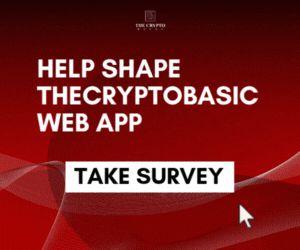The Palau Ministry of Finance and Ripple Labs have shared the results of the Palau stablecoin project’s phase one pilot, disclosing the next steps to take on the project’s roadmap.
Jay Hunter Anson, a Cybersecurity Consultant and Member of the Board of Directors at the Palau Finance Ministry, provided this update to the public in a recent disclosure. Taking to X, Anson shared a file containing the report, noting that it details the results of the phase one pilot.
?? Ministry of Finance Republic of Palau Stablecoin Program: Phase 1 Report" dated December 7, 2023, prepared by The Ministry of Finance and @Ripple Inc.
This report provides an analysis and findings of the Palau #Stablecoin (PSC) Pilot Project Phase 1, a pioneering endeavor in… pic.twitter.com/SLtjYqfbI3
— Jay Hunter Anson (@JHX_1138) December 7, 2023
Recall that the Palau stablecoin project entered its phase one pilot stage in March, but distribution started in June. However, as The Crypto Basic revealed, Ripple announced it on July 26 shortly after Jay Hunter Anson shared a live demonstration of the stablecoin’s capabilities.
Palau Stablecoin Phase One Pilot Stats
The latest update presents the statistics of the phase now that it has ended, detailing results from the experiences of the participants. Notably, the phase one pilot ended on Sept. 29. It involved 168 volunteers, with up to 20,000 Palau stablecoin (PSC) minted. This amounts to $20,000, as the stablecoin maintains a 1:1 ratio to the dollar.
Of the 20,000 PSC minted, the project’s team distributed 16,900 PSC to the 168 participants, at a minimum of 100 PSC for every wallet. Throughout the pilot phase, the participants carried out 729 transactions, with most of them, about 463, being merchant payments.
Meanwhile, 168 transactions went into distribution payments, with only 64 transactions involving peer-to-peer (P2P) payments. Moreover, following phase one, up to 14,534 PSC tokens were burned.
Results of the Pilot Phase
After the completion of the pilot, the project’s team carried out a survey involving the 168 participants to get their input on the stablecoin project. The report noted that as of Oct. 9, 83 out of the 168 participants had responded to the queries in the survey.
Of these respondents, about 36.6% revealed that the experience with the stablecoin was excellent, while 31.7% rated their experiences as good. A meager 9.7% revealed that they had an “unsatisfactory” experience. Most of the participants cited transaction speed, liberty to not carry cash, and ease of use for the good experience.
Recall that Ripple developed the wallet for the stablecoin in addition to leveraging its CBDC platform for the project’s blockchain infrastructure. 58.7% of the respondents found it easy to set up and use the wallet for payments, while 9.8% noted it was not easy.
However, about 50.6% of the respondents revealed that they had difficulties such as slow responsiveness with the wallet, troubles with the QR code when they wished to use it at a PoS terminal, the inconvenience that came with manually inputting a recipient’s address and the use of the QR code.
As these issues surfaced, the project’s team implemented resolutions. The survey reveals that 81% of the participants expressed satisfaction with the resolutions. In addition, retail purchases (87.8%), P2P transfers (67.1%) and cross-border payments (61%) were the top three use cases selected for the future deployment of the stablecoin.
Next Steps
The report suggested that the phase one pilot was a success, and generally demonstrated the stablecoin’s appeal and its potential to support the existing system in the country. Most of the respondents noted that they would support a full deployment of the stablecoin if the government approves it.
According to the report, the next phases will involve the development of an ecosystem involving everyday users, financial institutions, legal and regulatory frameworks, and regulatory bodies. The team will integrate all these into the stablecoin network.
DisClamier: This content is informational and should not be considered financial advice. The views expressed in this article may include the author's personal opinions and do not reflect The Crypto Basic opinion. Readers are encouraged to do thorough research before making any investment decisions. The Crypto Basic is not responsible for any financial losses.



